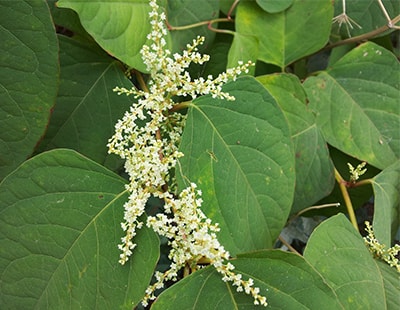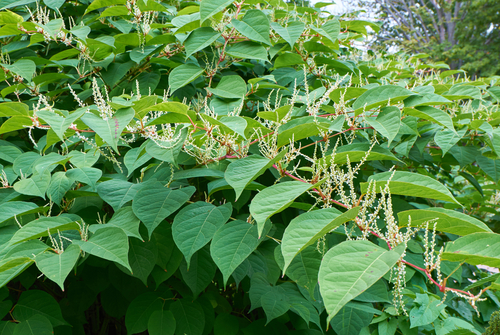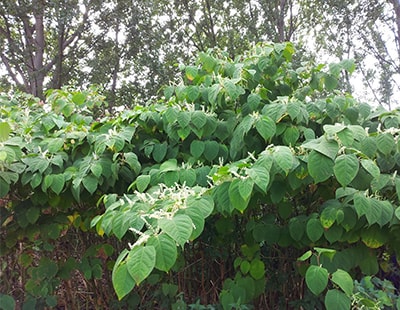
They’re two words that can make any property owner panic – Japanese knotweed. The invasive plant can cause significant issues for your property (and even your bank account if you allow it to spread). Its rapidly spreading nature can become a nightmare to deal with if not identified and treated quickly, with the damage it causes extending to foundations, drains and your neighbours.
It can also make your property difficult to sell on the open market, with new buyers not necessarily prepared to take on the task of eliminating the pesky plant – but that doesn’t necessarily mean it's an impossible task.
If you’re looking to sell your property and have discovered Japanese knotweed – don’t panic. It doesn’t necessarily have to spell game over. It is not an offence to have Japanese knotweed on your property, but it is illegal to allow it to spread. In the warmer months of spring and summer, it can grow as much as 10cm in a day and smother all other species in its path. The roots of one plant alone can spread to seven metres horizontally and reach depths of three metres – so your safest course of action from the get-go is to eliminate it.
When selling a property where Japanese knotweed is present, it is a requirement to declare this on the property information form and provide a management plan for its eradication from a specialist. Even if you have no immediate plans to sell, it is still recommended to enlist professionals to tackle the problem as the persistent plant will resist most usual attempts to destroy it. It can be known to regenerate from the tiniest remaining fragment and attempting to dig up the roots will only make it spread further. It has the capability to cling onto shoes, clothing or animal droppings and can even survive composting and burning.
Even if your attempts to remove it are successful, any plant waste must be buried at least five metres deep and beneath a root barrier membrane layer to eliminate the risk of it spreading again and can take at least three years to be treated with chemicals until it is eventually killed. As it is classified as ‘controlled waste’, you can’t just take it to the local recycling centre either or pop it in your green bin – you must use a registered waste carrier and an authorised landfill site to dispose of it.
Did I mention it’s a perennial? This means it dies back in the winter months, making it even trickier to spot.
Yes, it really does sound like something out of The Day of the Triffids! Don’t let that seed of worry sprout in your mind though. Regardless of your plans for your property, try to check your land regularly (especially now as we enter spring) and if you have any concerns, call in the specialists to start the long process of ridding your property of the picky plant.
If you’re already thinking of selling or don’t have the time or resources necessary to invest in tackling your Japanese knotweed problem, then it may make more sense for you to sell sooner rather than later. Naturally, the presence of Japanese knotweed is likely to impact on the value of your property. Mortgage lenders will understandably be cautious about lending against an effected property, which means a sale by auction could be the ideal solution.
Often, buyers on the open market won’t see past the problem to recognise the overall quality of the property itself. Many auction buyers, on the other hand, are experienced investors who aren’t phased by challenges like Japanese knotweed and will likely have dealt with the issue before. Auctions are also a faster way of selling your property, with completion timeframes of as little as 15 working days and fall-through rates of almost zero. What’s more, as long as the Japanese knotweed is declared prior to the sale, you won’t need to invest any money into its removal prior to sale (as long as it remains on your property) as SDL Property Auctions can sell any type of property in any condition.
So, while Japanese knotweed may tie you up initially, there is no need to panic. If selling isn’t on the cards, call in the professionals – otherwise, a sale by auction may be just what the doctor ordered.
*Andrew Parker is the Managing Director and Auctioneer at SDL Property Auctions




















Join the conversation
Be the first to comment (please use the comment box below)
Please login to comment